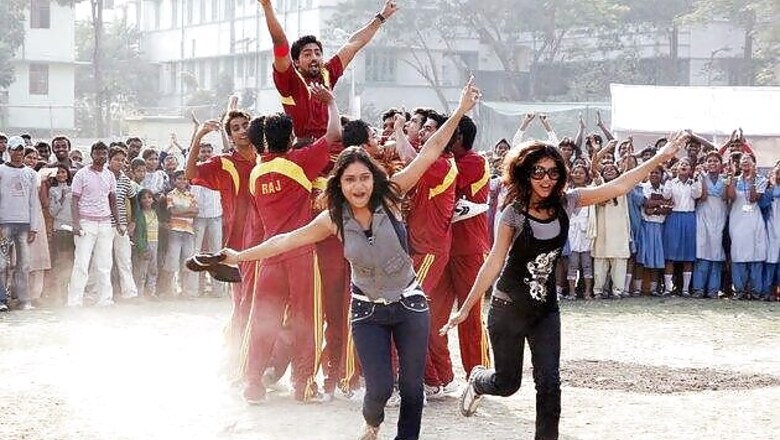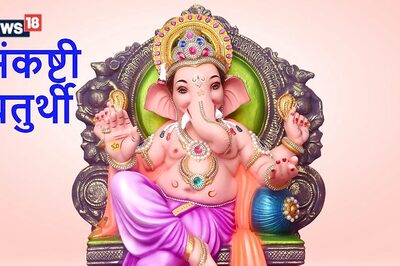
views
Abir Bose (Dev) is a para (neighbourhood) cricketer from the snobbish and westernised southern parts of Kolkata. Against his will, he moves to a dilapidated mansion in the more traditional and very 'Bengali' northern para called Dorji Para with his over-friendly father (Biswajit Chakraborty) and nyaka (nakhrewalli) mother (Laboni Sarkar) as tenants.
The mansion is owned by a somewhat madcap, feudal family that is now in slow and steady decay. The patriarch (Dipankar De) refuses to surrender to the local politician-cum-real-estate-promoter who wants to turn his prime property into a shopping mall to turn around his stroke of bad luck at the local elections.
The elder niece, Ratna (Debjani Chatterjee) is a sex-hungry spinster desperate to get married. The younger Rani (Payel Sarkar), in pigtails, black-framed glasses and a constantly sniffing nose, goes to college, takes tuitions and sings Rabindra Sangeet. Their brother Rajat (Ritwick Chakraborty) does nothing but play para cricket that has never won a single tournament.
How Abir defies the ragging of the para cricket team Eleven Bullets, becomes their friend, philosopher and guide, falls in love with Rani and uses para cricket as a betting stake with the local politician in true Lagaan style to save his neighbourhood from falling into the grips of the politician and his gun-toting goons makes the story.
Le Chakka is a one-man show where Abir is fleshed out to play a modern-day, middle-class, unemployed Superman who dwarfs every one from the team members of Eleven Bullets, to the politician's goons to the members of Rani's family to push the film to a contrived happy ending.
The music by Indradeep Dasgupta is mind-blowing though the Sufi song, the best in the score, sticks out like a sore thumb.
A film is not an election constituency. So why play on the minority ticket? The perennial north-south fight is clearly biased against the north, and for the south represented solely by one man – Abir.
Those who really live in the northern parts of Kolkata will not be pleased with this one-sided version. The goons and the cricket team are shown as cowards who cannot put up a fight if the opponent appears to be stronger. The 'dig' at Rabindra Sangeet is unkind too.
The ample middles of Biswanath Bose and Kharaj Mukherjee of Eleven Bullets are enough to show why the team is a born loser. The climactic shots of the cricket match where winning is a life-and-death question for Dorji Para are incredibly amateurish cushioned by clever editing (Rabi Ranjan Maitra).
Debjani Chatterjee is magical as the sex-hungry spinster who drops her sari for anyone in trousers. Dev needs to polish up his facial expressions for the close-ups because the camera is not too kind when he grimaces too much. Payel as Rani is sparkling as usual, but she screams and overdoes her sniffing-nose act in the beginning. Ritwick is good as the forever-angry Rajat.
The Eleven Bullets team members are given weak characterisations no thanks to Padmanava Dasgupta's story and script. The slow and steady romance between Abir and Rani, barring the song sequences needlessly shot in Sri Lanka, is more attractive than the para cricket ideology used to push the 'peace and harmony' message across.
The choreography is horrendous. The action scenes are well orchestrated and cinematographed.
Talk of the trailer being better than the film. Le Chakka, starring Dev and Payel Sarkar, put up wonderful, mind-blowing promos nearly a month before the film was due to release. But the final product leaves one less than happy.
Director Raj Chakraborty has delivered several box office hits, marked by a very successful debut with Chirodini Tumi Je Amaar.
Le Chakka will hit the jackpot. But the Raj Chakraborty magic is missing. The film has effectively captured the visual archeology of Dorji Para but has missed out on its spirit!
Critic: Shoma A. Chatterji















Comments
0 comment